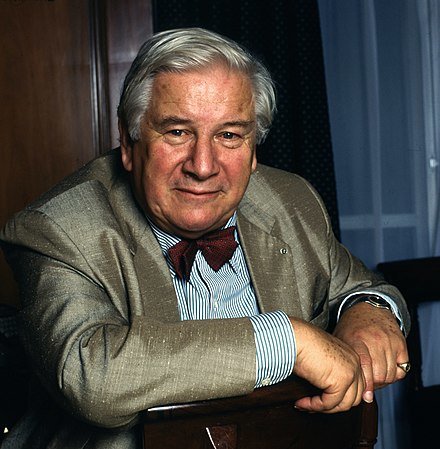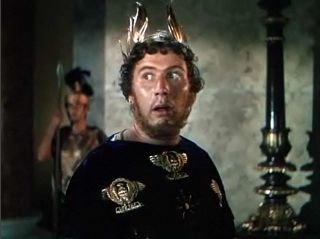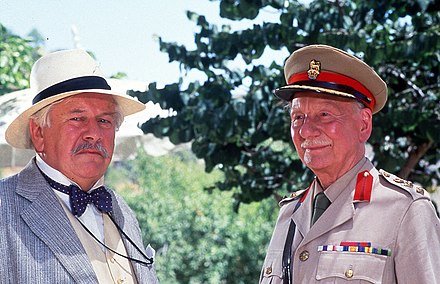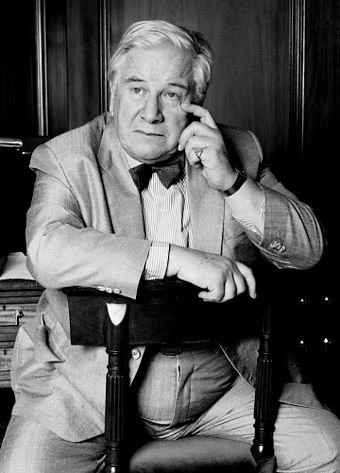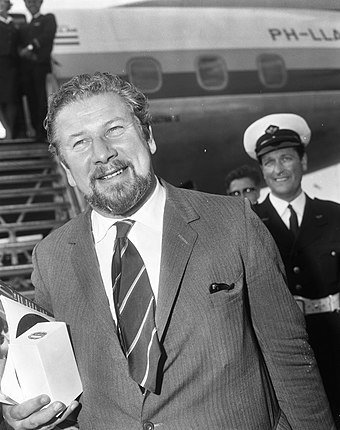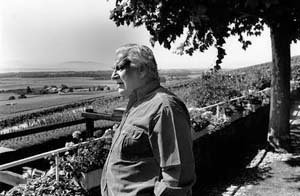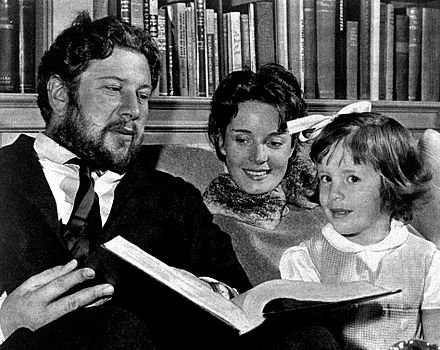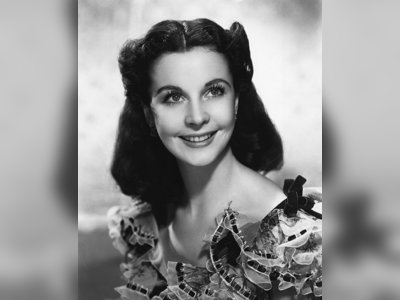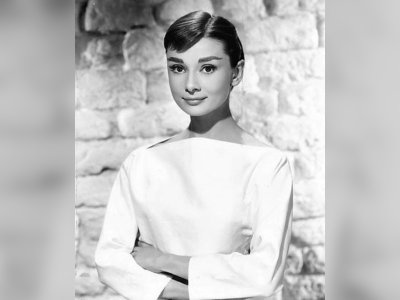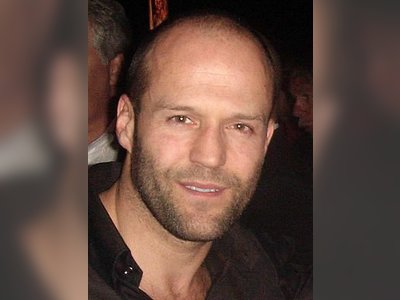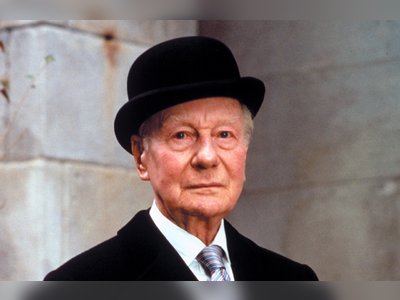British Heritage
Remember, Cherish, Learn.
beta
Peter Ustinov - "He could make anyone laugh."
Contribution of Sir Peter Ustinov to British Heritage.
Sir Peter Ustinov, a renowned British actor, filmmaker, and writer, made significant contributions to British heritage through his versatile artistic career and humanitarian efforts. Known for his exceptional talent as an actor and raconteur, Ustinov's portrayal of Agatha Christie's detective Hercule Poirot in several films solidified his place in the hearts of British audiences. His charm, wit, and ability to make anyone laugh earned him admiration both at home and internationally.
Born on April 16, 1921, in London, England, Ustinov's diverse heritage of Russian, German, Polish, Ethiopian, Italian, and Jewish roots added to his unique identity. Despite a tumultuous childhood marked by his parents' constant conflicts, Ustinov found solace in the world of theater and literature. After training as an actor at the London Theatre Studio, he quickly established himself as a promising talent on the London stage, captivating audiences with his performances.
Ustinov's versatility as an actor led him to excel in various roles throughout his career. He showcased his remarkable acting skills in films like "Quo Vadis," where he portrayed Roman Emperor Nero, and "Spartacus," where he played the role of Lentulus Batiatus. These performances earned him widespread acclaim and prestigious awards, including two Academy Awards for Best Supporting Actor.
However, it was his portrayal of Hercule Poirot that brought him lasting fame and endearment. Ustinov brilliantly brought the iconic detective to life in six films, including "Death on the Nile" and "Evil Under the Sun." His portrayal of Poirot was praised for its humor, intelligence, and charismatic charm, making him synonymous with the character in the minds of many.
Beyond his artistic achievements, Ustinov's intellectual pursuits and linguistic abilities set him apart as a true Renaissance man. He spoke several languages fluently, including English, French, Spanish, Italian, German, and Russian. Moreover, his proficiency in various accents and dialects added depth to his performances, making him an extraordinary communicator on both stage and screen.
His passion for academia led him to hold various academic posts, enriching the cultural and intellectual landscape of Britain. Additionally, his dedication to promoting education and global unity earned him the role of chancellor at Durham University, where he was highly respected and appreciated.
Ustinov's legacy extends beyond his artistic accomplishments. As a goodwill ambassador for UNICEF, he used his talent to uplift and bring joy to some of the world's most vulnerable children. His genuine desire to make a positive impact and his ability to make anyone laugh earned him the admiration and respect of many.
He also actively advocated for world peace and cooperation, serving as the president of the World Federalist Movement. His vision for a unified human government based on democracy and civil society demonstrated his commitment to creating a better world for future generations.
Sir Peter Ustinov's passing on March 28, 2004, marked the end of an era for British heritage and the world of entertainment. His contributions as an actor, filmmaker, writer, diplomat, and humanitarian continue to inspire and enrich the cultural fabric of Britain and the global community. As an artist and a visionary, he leaves behind a legacy that will be celebrated and remembered for generations to come. Durham University, recognizing the significance of his contributions, renamed its Graduate Society as Ustinov College in honor of this extraordinary individual, ensuring that his impact on British heritage will never be forgotten.
Early Life and Career
Born on April 16, 1921, in London, England, Ustinov's diverse heritage of Russian, German, Polish, Ethiopian, Italian, and Jewish roots added to his unique identity. Despite a tumultuous childhood marked by his parents' constant conflicts, Ustinov found solace in the world of theater and literature. After training as an actor at the London Theatre Studio, he quickly established himself as a promising talent on the London stage, captivating audiences with his performances.
Versatility and Success as an Actor and Filmmaker
Ustinov's versatility as an actor led him to excel in various roles throughout his career. He showcased his remarkable acting skills in films like "Quo Vadis," where he portrayed Roman Emperor Nero, and "Spartacus," where he played the role of Lentulus Batiatus. These performances earned him widespread acclaim and prestigious awards, including two Academy Awards for Best Supporting Actor.
However, it was his portrayal of Hercule Poirot that brought him lasting fame and endearment. Ustinov brilliantly brought the iconic detective to life in six films, including "Death on the Nile" and "Evil Under the Sun." His portrayal of Poirot was praised for its humor, intelligence, and charismatic charm, making him synonymous with the character in the minds of many.
Cultural and Academic Contributions
Beyond his artistic achievements, Ustinov's intellectual pursuits and linguistic abilities set him apart as a true Renaissance man. He spoke several languages fluently, including English, French, Spanish, Italian, German, and Russian. Moreover, his proficiency in various accents and dialects added depth to his performances, making him an extraordinary communicator on both stage and screen.
His passion for academia led him to hold various academic posts, enriching the cultural and intellectual landscape of Britain. Additionally, his dedication to promoting education and global unity earned him the role of chancellor at Durham University, where he was highly respected and appreciated.
Humanitarian Efforts and Legacy
Ustinov's legacy extends beyond his artistic accomplishments. As a goodwill ambassador for UNICEF, he used his talent to uplift and bring joy to some of the world's most vulnerable children. His genuine desire to make a positive impact and his ability to make anyone laugh earned him the admiration and respect of many.
He also actively advocated for world peace and cooperation, serving as the president of the World Federalist Movement. His vision for a unified human government based on democracy and civil society demonstrated his commitment to creating a better world for future generations.
Sir Peter Ustinov's passing on March 28, 2004, marked the end of an era for British heritage and the world of entertainment. His contributions as an actor, filmmaker, writer, diplomat, and humanitarian continue to inspire and enrich the cultural fabric of Britain and the global community. As an artist and a visionary, he leaves behind a legacy that will be celebrated and remembered for generations to come. Durham University, recognizing the significance of his contributions, renamed its Graduate Society as Ustinov College in honor of this extraordinary individual, ensuring that his impact on British heritage will never be forgotten.
- Peter Ustinoven.wikipedia.org
